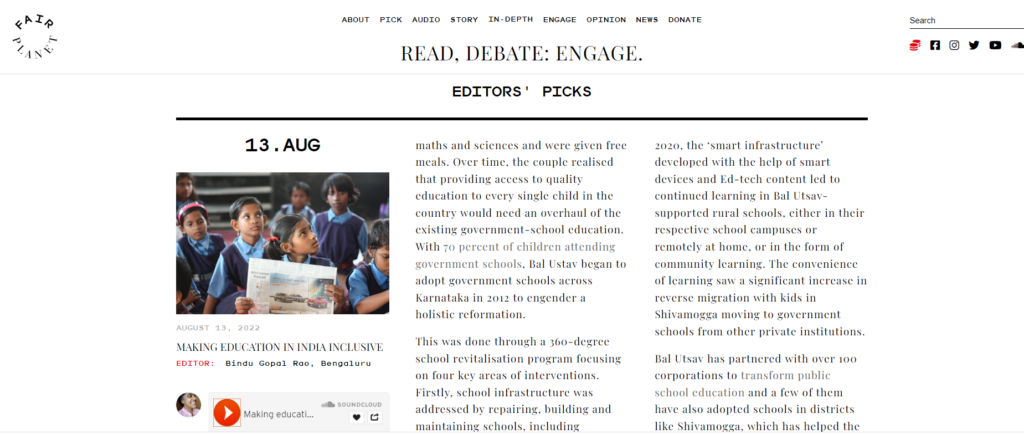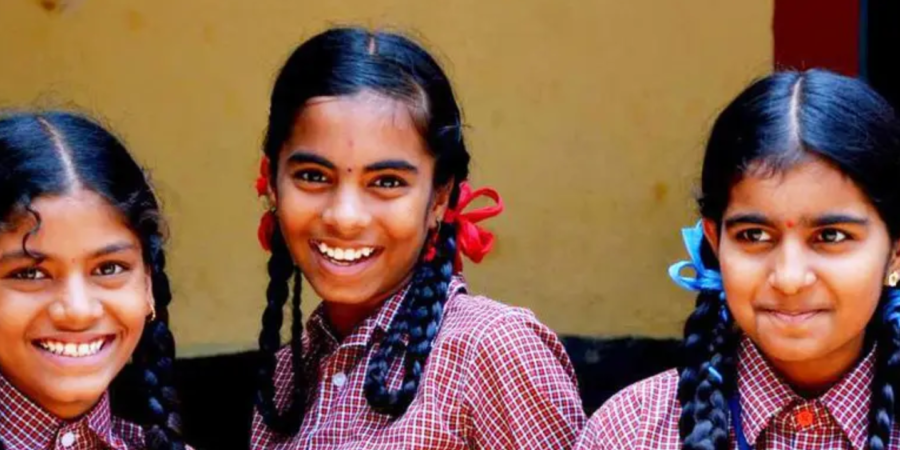Bal Utsav is an NGO led by couple Binu and Ramesh whose key mission is to empower the children of India and provide a better future for them.
Bal Utsav’s iShaala program looks at organising and bringing efficiency into the existing system instead of reinventing it. Over the last few years, Bal Utsav has partnered with 100+corporates – from Banking & financial services domains to Software & Hardware product companies and manufacturing to transform public school education. A few of them have also adopted schools in districts like Shivamogga and helped Bal Utsav implement a blended learning model. These schools have been equipped with ‘smart infrastructure’ involving smart devices and Ed-tech content. Due to this convenience of learning, some of the Bal Utsav supported government schools witnessed reduced dropouts, and a significant increase in reverse migration i.e kids in the district moving to Govt schools from other private institutions. Bal Utsav till date has reformed over 200+ government schools through its sustainable interventions and helped over 8 lakh students.

The government and the private sector have undeniably contributed towards the betterment of education over the years. As per the latest official data, the education sector received Rs 5,877 crore in Fy21 as against Rs 7,155 crore in Fy20, clearly there is a drop in CSR funds in the sector and signalling an immediate need for funding in public education especially on the back of the pandemic.
Bal Utsav believes the pandemic has left a devastating impact on govt school education, and now more than ever Corporate India must be involved in bringing systemic change in public education: one that is relevant in the post-pandemic world. The NGO with the help of its corporate partners roll out the iShaala program – a blended learning model that brings in e-learning and teacher-led classrooms in these rural schools. The team (Bal Utsav team+ Corporate employees) designs programs such as painting the school infrastructure, mentoring children, organizing programs like menstrual hygiene awareness programs for girls, coordinating Sports Day, etc. BalUtsav’s programs ensure learning continues unabated as children battled through the pandemic.
The transition to the blended learning model by Bal Utsav in rural govt schools in Karnataka started in December 2020. The ‘smart infrastructure’ developed with help of smart devices and Ed-tech content led to continued learning in Bal Utsav-supported rural schools either in their respective school campuses or remotely at home or in the form of community learning. Due to this convenience of learning, some of the schools witnessed reduced dropouts, and a significant increase in reverse migration i.e kids in the district moving to Govt schools from other private institutions.
The iShaala model can be rolled out nationally if multiple players come together to bring in a holistic impact on public education in India. It is the need of the hour for the private and public sectors to work in tandem to make the blended learning model a reality for children across India irrespective of the demography or the kind of school they go to.
One of the big five tech companies, that has a giving week dedicated each year – has consistently been supporting the various initiatives of Bal Utsav for almost 10 years in a row.
Many times channelising the contributions towards schools in remote parts of India that are supported through our iShaala program. The resources donated by the employees of this organisation are matched by the enablers of the campaign which intern is matched by the company thus enabling a 4x contribution for every $ donated.
The response from across the globe (individuals and corporations) towards our disaster response interventions has been truly overwhelming. With resources being pledged, donated and matched within hours of announcing the outreach and resources being channelised to those in need.
Read the full story that first appeared in Fair Planet here:

